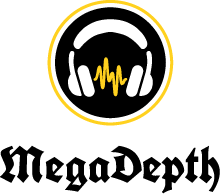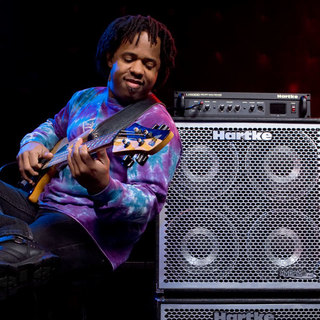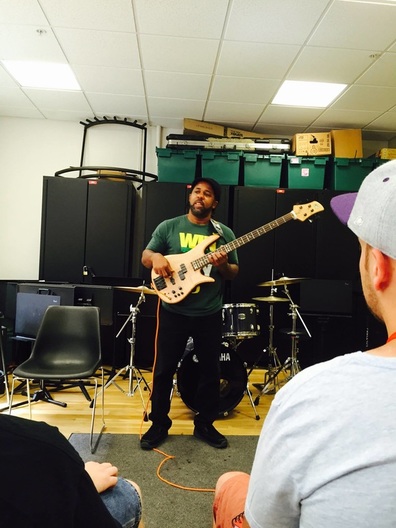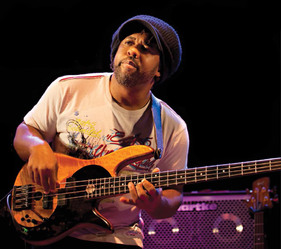I’ve been working on a different blog post lately; but just this past weekend I had a chance to attend a session that Victor Wooten hosted; and his words were so encouraging to all musicians that I wanted to share this as quickly as I could. Wooten has such a remarkable background that it’s impossible to summarize shortly; but it’s safe to say that if you are interested in music and in certain instruments in particular, there is no way that you never heard of his name. He’s also collaborated with so many musicians – which is truly awesome – that there is a good chance you’ve seen him jam with some of your favorite musicians too. He made so many great points that I wanted to share them here hoping that it will also be helpful to somebody else.
I found out about the clinic a day before it happened. I work for the online school of Berklee College of Music and I am realizing more and more every day that there is always something cool taking place around the campus. I was going to be at one of the buildings last weekend to help with whatever the organizers needed at the Berklee Onsite event (an event designed to give some of the online students a chance to experience the campus life for a few days) and part of that day’s events was Victor Wooten’s clinic. I was asked if I wanted to attend and of course I said yes to that opportunity! I’m not a bass player but I’ve always known about Wooten. Music is my favorite hobby and I am a guitar player myself. I always appreciate talented musicians and I’d seen many videos of Victor Wooten blowing his audience’s minds with the control he has over his instrument – I wasn’t going to miss a chance to meet him and hear his opinion on various topics.
His clinic was geared towards developing your skills on your instrument and performing in general, so it wasn’t just about bass guitars. I was able to get some tips for my approach to playing from what he shared so that was great! I hope I can devote enough time to my playing to follow some of his advice because the points he made were highly encouraging. He really understands what goes through a player’s head and what some of the common obstacles are. I liked his suggestions for possible solutions too. I think it can be helpful to all musicians out there – whether you’re playing just for hobby or you’re in a full-time band – so I’m going to end this post with some of his points and recommendations. I hope they’ll be useful for folks who play or perhaps want to start playing an instrument.
Before I get to those notes, I want to also add that Victor Wooten was really down to earth, super friendly and had a great sense of humor. I have nothing but respect for highly accomplished artists who maintain that great attitude!
Note: In the below bullet points, I am paraphrasing as I am recalling from memory as best I can, so these are not direct quotes.
- Don’t focus on what you don’t know, focus on what you do know and go from there.
- Think about this – even if you are new to an instrument, you’ve been listening to all your favorite musicians for a long time. Why not start there and see if you can figure out what patterns they’re using?
- Or let’s say you know a simple riff – that’s a start! See if you can create different grooves or rhythms from that same riff. See if you can change the key and you’ll see how that changes the overall feel. Your audience will react to all of these!
- Think about how you started learning how to speak your native language. You were what you would consider a beginner but you didn’t mind talking to adults who were “advanced” in this “new language” to you. So why wouldn’t you play with musicians who may have more experience than you do? That’s the best way to learn!
- Music theory is of course important but it’s not the most important thing in music! Remember that music existed way before music theory did; as evidenced by the fact that music theory was derived from studying the patterns of musicians! So don’t get trapped by theory – knowing scales won’t automatically make you a great musician. Just play. Play what you feel.
- When somebody asks you how good you are at your instrument, don’t hesitate to say that you’re good! Don’t feel like you’re being arrogant if you say you’re good. You’re not claiming to be the “best” – you’re just saying you’re good. You need to have confidence in your ability if you want to move forward. Constantly downplaying yourself will not help you.
- When you are jamming with other musicians, think of that as communicating with people through language. You don’t know what you’re gonna say, you say things as a reaction to what other people are saying and they do the same. We don’t plan our daily conversations, do we? So why not approach jamming the same way? Listen to what the other musicians are doing and try to find the sound that complements what they are doing (i.e. react to what they are doing). They will do the same for you. Go with the flow and adjust as the rhythm or the key changes.
- If you are a bass player and you want to sing and play at the same time – remember this when you are having trouble doing both at the same time: you may be able to sacrifice from some of the notes to simplify what you play but you should never sacrifice the groove! That’s what your audience will want to hear! (Alper’s Note: he demonstrated this with Stevie Wonder’s “Superstition” – one of my favorite moments from the clinic)
Thanks Victor for all the advice and I hope I bump into you again some time.
To end this post, here’s a quote from an interview which summarizes his philosophy greatly: It’s about the music. It’s all about the music…
“I think the instrument has taken a backseat. It’s not about your instrument – it’s about what you have to say. Your instrument happens to be the one you use – it might be a bass, voice, an alto or soprano – but who cares? It’s all about what you’re saying with it. Right now, you’re not thinking about how your lips are moving or the physics of your talking, you’re just speaking. That’s how I approach the bass – by approaching the music instead.”
Full interview can be found here.





